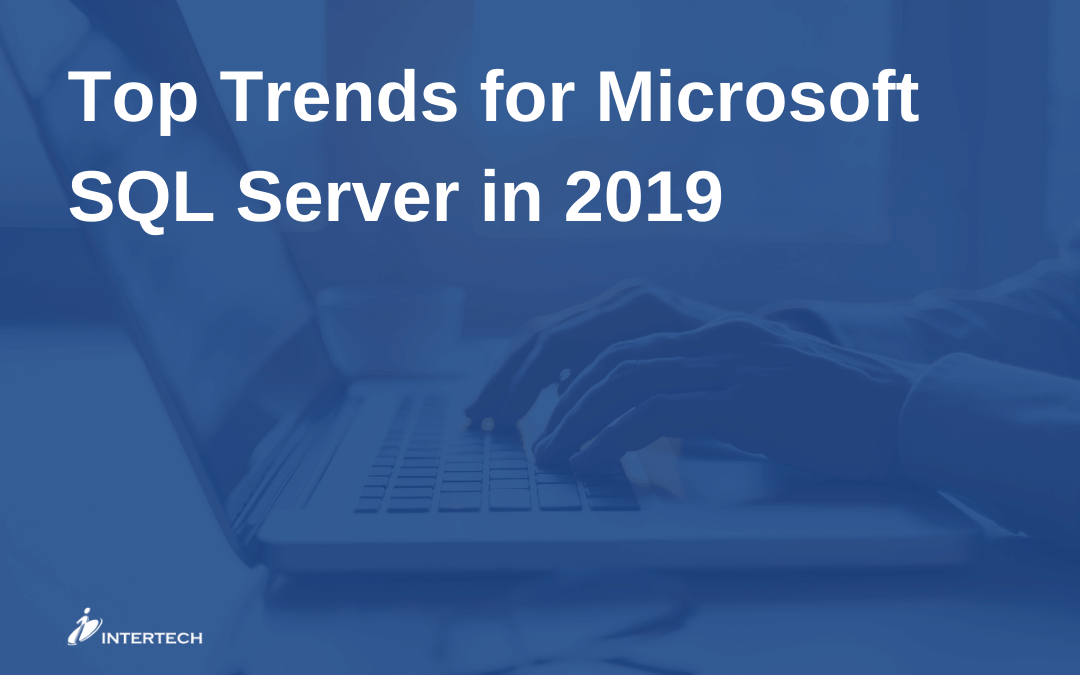Top Trends for Microsoft SQL Server in 2019
In our consulting practice, we see a lot of companies using Microsoft products to deploy their applications. While open source technologies like PostgreSQL and MySQL are popular choices for databases, when companies use a Microsoft stack for their applications MS SQL Server is often the go-to database choice.
MS SQL Server is quite similar to other databases, but there are also key differences that present both challenges and opportunities for companies using it in their stack. Furthermore, MS SQL Server is undergoing big changes in the past few years to make it more open and extensible across various platforms.
In this post, we’ll take a look at the top Microsoft SQL Server trends from the past few years and get an overview of the technology’s current status.
SQL Server vs MySQL or PostgreSQL
Until recently, SQL Server was a bit isolated from its competitors. If you were developing for deployment on a Windows server, SQL Server had the best support. However, if your deployment was going to happen on a Linux server, you needed to stay away from SQL Server.
This separation led to a lack of real competition between database products as they rarely went head-to-head. As a result, the products developed along different paths as well.
MySQL and PostgreSQL support interfaces with more programming languages than SQL Server, for instance, because extensibility was more important for their varied applications. SQL Server, on the other hand, prioritized security and atomicity of transactions, as many of its users were enterprise clients.
Filtering across databases, canceling queries mid-execution, and non-blocking backups are all features in SQL Server that MySQL and PostgreSQL either didn’t have or have only added recently.
Microsoft Prioritized Cross-Platform in Recent Releases
Recently, Microsoft has shown increased interest in producing cross-platform open technologies that work outside the Windows ecosystem. Indeed, their recent push for companies to adopt .NET Core over older frameworks is one such example. Open source tech that can work on all platforms is critical if Microsoft wants to maintain market share in the face of increased competition.
The same is true for Microsoft SQL Server. While it used to be a Windows-only product, recent releases have prioritized making SQL Server available and fully featured on Mac and Linux. Now, SQL Server can compete directly with MySQL and PostgreSQL in those arenas.
This also affords companies more flexibility. They can change deployment environments relatively easily without sacrificing their existing dependencies. Containerization will only continue to make the process easier, with the ability to spin up instances of SQL Server in multiple environments without difficulty.
On-Premise vs. Cloud
Another major development in the world of software is the move from on-premise hosting to cloud-based web services. Amazon Web Services, Google Cloud, and Microsoft Azure now dominate the market as the predominant ways to deploy applications.
Here, too, SQL Server fell behind the competition in its ability to support and easily integrate with cloud service providers. However, it’s catching up. A major push for SQL Server development has been cloud computing support across providers, not just on Microsoft’s Azure.
Support for scalability and seamless auto-scaling has been a priority for SQL Server development in recent releases.
Microsoft SQL Server in 2019
With the rise of big data, companies are storing more information than ever before. With its advantages in security, atomicity, and enterprise use, SQL Server is a major player in the big data space. 2019 and beyond is a critical time for SQL Server as it matures into a cross-platform, cloud-enabled, big data hub for large-scale applications. Expect the features and capabilities of SQL Server to continue to expand to meet these growing needs for modern enterprises.
About Black Slate
Founded in 1991, Black Slate delivers software development consulting and IT training to Fortune 500, Government and Leading Technology institutions. Learn more about us. Whether you are a developer interested in working for a company that invests in its employees or a company looking to partner with a team of technology leaders who provide solutions, mentor staff and add true business value, we’d like to meet you.
















